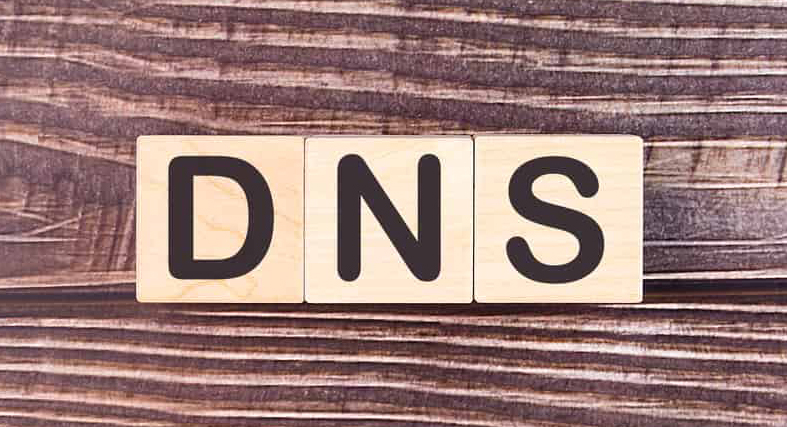Today, we’ll take a look at what a DNS (Domain Name System) is, what it does and how you can perform a DNS leak test on your internet connection so you can prevent the loss of your online privacy.
What Is DNS Leak?
DNS leaks happen when the VPN service that you are using isn’t doing a good job of protecting your data and leaking your DNS requests from its VPN DNS servers. So even though the VPN is hiding your real IP address and identity one way, it is leaking it another way (via the DNS) that effectively makes your VPN useless, your ISP (or anyone monitoring your internet) will be able to see who you are and what websites you are visiting.
What Is a DNS Leak Test and How Do I Check for a DNS Leak?
A DNS Leak test is a process where a computer will try to track your information that is broadcast on your internet connection. If the data that the computer gets matches your real information then you have a DNS leak.
Note:
We have gone and programmed a special DNS Leak test tool just for our users here at Security Gladiators, so you can make sure your VPN is doing it job and protecting you.Security Gladiators DNS Leak Test Tool.
Please disable all adblocker extensions and programs as the tool won’t work properly if they are enabled.
cheking for leaks

Leak Test Instructions:
- Launch your VPN and then connect it to a server in a different city or even country
- Click on the “Start Test” button above
- Wait for the test run and get to 100%
- Turn your VPN off and then open this page in another tab and run the tool to get your IP location details.
- Compare the DNS results in the table with your actual ISP details.
- If you are using a VPN and they match, then your VPN is leaking your DNS requests
- If you have a DNS Leak then switch to a good VPN that values your privacy, see the best here
Are VPNs Immune to DNS Leak Problems?
Good quality VPN services are the best way to protect against DNS leak problems. VPN’s are supposed to protect you from DNS leakage by using encrypted VPN tunnel systems to close all openings for online monitoring, but not all VPN’s do this. It is very important to regularly check for DNS leaks on your VPN especially if your main concern is privacy and anonymity, if your VPN leaks this information then you should change VPN companies immediately.
Table of Contents
Good Times to Check for DNS Leaks:
- When you first subscribe to a VPN.
- Every time you are doing something very sensitive online with your VPN.
- For the paranoid or extremely private person, every time you use a VPN.
- When your VPN is up for renewal.
- When your VPN isn’t unblocking the website it should be.
How Do I Fix a DNS Leak?
There are many ways of preventing DNS leaks and keeping your privacy intact. But the most convenient option is using a VPN service.
Virtual Private Networks route your internet traffic through an encrypted tunnel, including DNS requests that go through servers owned by your VPN provider.
This way, the VPN can hide your information from ISPs, government agencies, hackers and other third-parties.
When deciding on the best VPN to use, it’s important to do your research to determine whether a VPN service provider is trustworthy and reliable.
This is important:
DNS leak protection is crucial. If you sign up for an industry-leading VPN service, you might be relieved to know that messing with your data goes against their business model.Additionally, most top VPN services don’t keep logs of users’ data, so they wouldn’t have any data to hand over to third parties even if they wanted to.
Other Security Gladiators Tools
What Is DNS?
DNS or Domain Name System is essentially used for naming online services and computers. By nature, this naming system is decentralized.
We’ll explain why this is important later but for now, just know that a DNS takes the domain names used to access online services—like www.google.com or www.nytimes.com—and translates them into machine-readable IP addresses.
This way, you don’t have to memorize random strings of numbers (IP addresses) whenever you go to a website or online service.
For example, the web address www.google.com isn’t something a computer understands as we do in the English language. The machine reads www.google.com as a string of numbers, like 2001:4860:4860::8888.
Note:
You don’t want to have to memorize that every time you access Google. With a DNS, you can simply input “google.com” to access Google’s website.How Does DNS Work?
Whenever you input an address to the URL bar of your web browser, you’re actually sending the domain name of the website you want to visit to a distant DNS server.
The DNS server then searches the IP address that matches the domain name you entered in the URL bar. The server then sends the IP address back to your computer.
Now, the web browser sends a new and complete request to the server that’s located at the returned IP address from the DNS server. Then the webpage you’re trying to access gets loaded onto your screen.
Though a lot of processes are happening simultaneously, the return is so quick that you don’t even have to blink to see the website loaded on your screen, assuming your internet connection is fast.
While this method is fast and convenient, it isn’t always the most secure.
Warning:
Hackers have ways of circumventing the DNS process to infringe on your privacy.Once you enter a website’s domain name, the web browser sends DNS queries to a remote DNS server. Here, the DNS server (or DNS servers, depending on how rare your query is) finds the IP address belonging to the domain name.
If you’re using a standard router, smartphone device or desktop, and have not changed your DNS source, then all the DNS queries your web browser makes to the DNS servers are recorded on the server of the people/entities who own the DNS servers. In most cases, your internet service provider operates your DNS servers.
Without proper regulation, there’s nothing stopping your ISP from recording all your DNS queries among other data.
They probably keep logs as well. It isn’t hard for them to connect the IP address of the user with the DNS requests made from that IP address. Your internet service provider can also record the date and time you sent a DNS request.
Governments in some countries can force ISPs to give up such information through a subpoena. Lawyers working for big music labels and movie studios, along with law enforcement agencies, regularly track users and their online activities through such information.
Note:
ISPs can also sell your private data to high-paying advertisers or other third parties.



